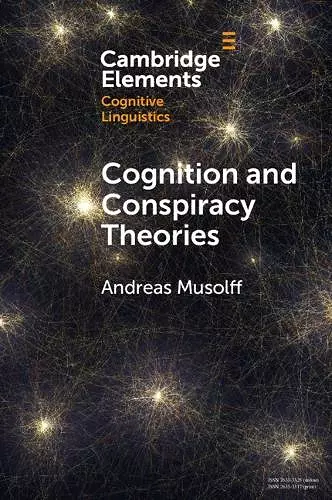Cognition and Conspiracy Theories
Format:Paperback
Publisher:Cambridge University Press
Published:4th Dec '25
Currently unavailable, currently targeted to be due back around 31st December 2025, but could change

Conspiracy theories are often dismissed because of supposed conceptual or factual flaws. It shows how to match their persuasive force.
This Element deals with the relationship between cognition, understood as the process of acquiring and developing knowledge, and diverse types of conspiracy theories, or short, 'CTs'. The Element discusses four components of narrative argumentative framing in CTs, contemporary and historical 'hoax' and 'asserting' CTs, and more.This Element deals with the relationship between cognition, understood as the process of acquiring and developing knowledge, and diverse types of conspiracy theories, or short, 'CTs'. Section 1 lays the groundwork for the analysis by determining four components of narrative argumentative framing in CTs, of which the first three are constitutive for all CTs, with a fourth representing the 'optional' collective action-guiding “scenario” component. Section 2 exemplifies manifestations of these components by discussing contemporary and historical 'hoax' and 'asserting' CTs and 'empowering' CTs. Section 3 takes a cognitive-evolutionist and pragmatic view at the conditions for the 'success' of CT scenarios. In conclusion. Section 4 formulates lessons for countering the effects of socially detrimental CTs by deconstructing them and by obstructing their dissemination.
ISBN: 9781009660631
Dimensions: unknown
Weight: 138g
86 pages